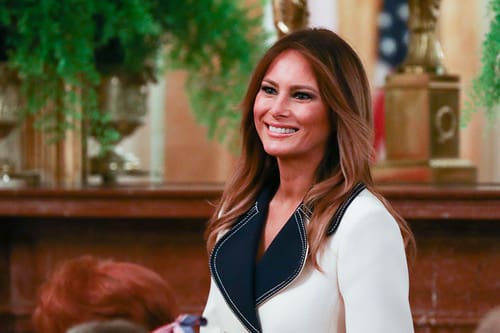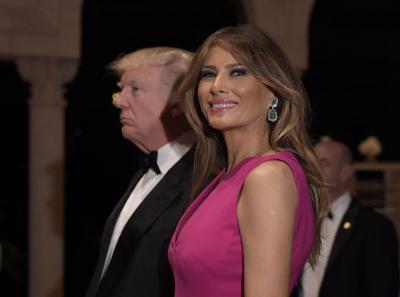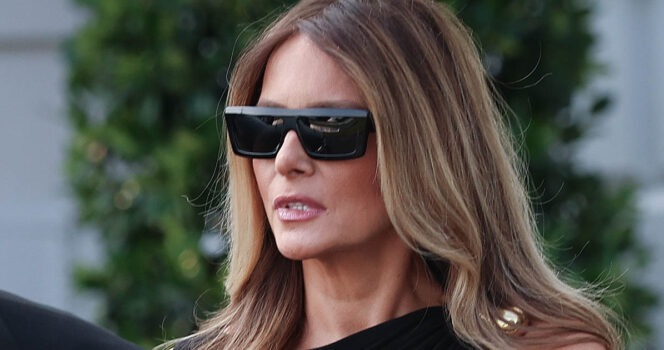Melania Trump, former First Lady of the United States, has long faced questions about her path to permanent residency in the U.S. Specifically, public debate has centered on her 2001 acquisition of an EB-1 visa—sometimes called the “Einstein visa.” Critics have questioned whether her modeling career met the visa’s high bar for “extraordinary ability.”

What Is the EB-1 Visa?
According to U.S. Citizenship and Immigration Services (USCIS), the EB-1 visa is an immigrant (permanent) visa category designed for individuals who can demonstrate “extraordinary ability” in fields such as the sciences, arts, education, business, or athletics; outstanding professors and researchers; or certain multinational executives and managers (USCIS).
For the “extraordinary ability” subcategory—the one Melania Trump is reported to have used—applicants must show sustained national or international acclaim and that their achievements have been recognized in their field through extensive documentation.
Examples USCIS cites include winners of major internationally recognized awards (like Nobel Prizes), but also those who can satisfy at least 3 of 10 criteria, such as:
-
Nationally or internationally recognized prizes or awards for excellence
-
Membership in associations requiring outstanding achievements
-
Published material about the individual’s work
-
Participation as a judge of others’ work
-
Original contributions of major significance
-
Authorship of scholarly articles
-
Display of work at artistic exhibitions
-
Leading or critical roles in distinguished organizations
-
High salary or remuneration
-
Commercial success in performing arts
Importantly, no single award or accolade is strictly required (such as a Pulitzer or Nobel Prize); eligibility can be established by meeting three or more criteria from the list above (USCIS).

Melania Trump’s Immigration History
According to Newsweek and other reputable outlets that have interviewed Melania Trump’s former lawyer, she first arrived in the United States in 1996 on a visitor visa before securing work visas for her modeling career (Newsweek, 2018).
In 2001, she was approved for permanent residence through the EB-1 category.
Her pathway included:
-
Initial visitor visa in 1996
-
Subsequent professional work visas
-
EB-1 immigrant visa in 2001
-
U.S. citizenship in 2006
Why Is It Called the “Einstein Visa”?
The EB-1 visa is informally nicknamed the “Einstein visa” in media because it is available to individuals of “extraordinary ability.” However, the nickname is not an official legal requirement.
USCIS policy recognizes that “extraordinary ability” may be demonstrated in diverse fields, not limited to scientists of Einstein’s caliber. Indeed, artists, athletes, business leaders, and entertainers have successfully qualified by satisfying the agency’s criteria.
Can Models Qualify for the EB-1 Visa?
Yes. While the standard is high, modeling can fall under the arts category for the EB-1. Applicants must document extraordinary ability through evidence meeting at least three of the 10 USCIS criteria.
For example, evidence may include:
-
Major modeling awards
-
Coverage in prominent magazines
-
Leading roles in distinguished modeling campaigns or fashion shows
-
High earnings indicative of top-tier success
-
Media profiles demonstrating international acclaim
The U.S. immigration system recognizes that international modeling can be a field of artistic achievement, making it possible (though challenging) for models to qualify.
Fact-Checking: What Have Reliable Sources Said About Melania Trump’s Visa?
Amid political debate, fact-checking outlet Snopes reviewed the controversy. While it noted that Melania Trump’s exact petition file is not public—so no one outside government can see precisely which evidence she submitted—it found that:
-
Melania Trump’s visa lawyer has stated she received the EB-1.
-
The EB-1 can indeed be awarded to models demonstrating extraordinary achievement.
-
Other models and entertainers have received similar visas (for example, John Oliver held an O-1 visa before gaining permanent residence, and Shera Bechard, a former model, also received an O-1 visa).
Snopes concluded that it is “not improbable” a successful model could meet the legal standard for an EB-1, given the field’s potential for international recognition and high-profile achievement (Snopes).

Why Was the Controversy Renewed?
In 2024, public attention returned to Melania Trump’s visa history when Rep. Jasmine Crockett (D-TX) referenced it during a House Judiciary Committee hearing, questioning whether she had truly met the EB-1 requirements.
Crockett criticized the notion that Melania’s modeling career represented the “extraordinary ability” standard, suggesting it fell short of the bar set by major international awards or significant creative contributions.
This questioning sparked renewed partisan debate, with some defending Melania Trump’s eligibility based on the visa’s legal criteria, and others suggesting the approval reflected overly generous interpretations of the standard.

The Legal Standard: No Single “Magic” Award Required
While political arguments continue, the legal framework for EB-1 visas remains clear:
-
No single type of prize (like a Nobel or Pulitzer) is required.
-
USCIS evaluates applications based on meeting three or more of its ten criteria.
-
Successful applicants must prove sustained acclaim and significant contributions relative to their field.
It is a rigorous process, and many applicants are denied. But the system does allow for varied careers—including modeling—to qualify if they can meet the evidentiary standard.

Conclusion
Melania Trump’s 2001 EB-1 visa approval has been repeatedly cited as controversial, especially during periods of heightened political tension. Critics have claimed her modeling career did not represent “Einstein-level” accomplishment.
But immigration experts and USCIS guidance show the EB-1 is not restricted to scientists or academics. Its criteria explicitly cover the arts, and successful models may qualify if they can demonstrate extraordinary ability through recognized achievements.
While Melania Trump’s specific petition remains confidential, her lawyer has confirmed her EB-1 approval. Fact-checkers like Snopes have found the approval plausible under immigration law, noting other models and entertainers have qualified for similar visas.
Ultimately, the EB-1 visa is intended for individuals with extraordinary ability proven through substantial evidence—regardless of field. The debate over Melania Trump’s visa underscores how U.S. immigration law assesses “extraordinary” achievement across diverse professions.

Sources
-
U.S. Citizenship and Immigration Services – EB-1 Overview
-
USCIS Policy Manual – Extraordinary Ability
-
Snopes Fact Check on Melania Trump’s EB-1 Visa
-
Newsweek Coverage of Melania Trump’s Visa



